PARTNERS
home > partners

African Development Bank
The African Development Bank Group (AfDB) or Banque Africaine de Développement (BAD) is a multilateral development finance institution. The AfDB was founded in 1964. The AfDB’s mission is to fight poverty and improve living conditions on the continent through promoting the investment of public and private capital in projects and programs that are likely to contribute to the economic and social development of the region. Malnutrition Matters was chosen by the AfDB as a partner for the Rural Enterprises Phase III Project, being implemented by the Ghanaian Ministry of Trade and Industry. See the Projects (Africa) page for more information.

Africare
Malnutrition Matters has worked with Africare to install VitaGoats and SoyCows in a number of African countries including: Zambia, Namibia, Zimbabwe, Cote d'Ivoire, Guinea, Mozambique, Guinea and Chad. The proposed model in each case is to install a VitaGoat or SoyCow within a community already partnered with Africare for food security and health initiatives in order to create a sustainable small business that can help nourish the community, sell inexpensive and healthy foods to the locals and create employment. The ten VitaGoats installed in Zambia have enabled the establishment of a training and technical support center. Malnutrition Matters has developed a business guide for SoyCow/VitaGoat locations, that includes modules for: weaning foods, foods designed for people living with HIV/AIDS and mango and tomato processing.
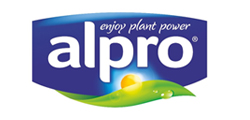
Alpro CVA
This company, based in Belgium, is Europe's leading soyfood company and specializes in soymilk and soya dairy alternatives. Since 2004, they have sponsored the work of Malnutrition Matters and, as the only corporate sponsor, have been critical in the evolution of the technology and its implementation. This is also the only sponsorship which is not tied to a particular project or region and therefore allows the development of MM's program with any technology and any project or region. This generous support has been provided without "strings" attached and is intended to reflect the corporate spirit of Alpro to benefit the poor consumers in developing countries while the company's own products and business are with the more fortunate "western" consumer. The fact that both Alpro and MM facilitate good nutrition with soy, at opposite ends of world's economic development, is an inspiration for this unique relationship.
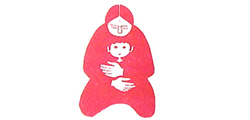
Child Haven International, India
The first SoyCows ever built were installed in Child Haven homes in India in 1990 in a partnership with ProSoya, the Canadian company which designed the original systems. Eventually this led to a technology transfer to an Indian manufacturer, SSP, who could produce the systems at a lower cost. Since that beginning, many SoyCow systems have been sold in India to both entrepreneurs and NGO's.
Child Haven sponsored the transfer of technology to manufacture the VitaGoat in India (to G.D. Machines), with funding from the Donner Foundation Canada (see below), and co-sponsored the installation of the first three VitaGoat systems in India. A second phase of VitaGoat-based development is proceeding in India now, with additional installations already complete in Orissa and Maharashtra. Deployment of the new fruit and vegetable dryer expected in India is in progress.
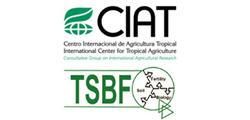
CIAT TSBF
The Tropical Soil Biology and Fertility Institute of the International Centre for Tropical Agriculture (TSBF-CIAT) has as overall goal 'to contribute to human welfare and environmental conservation in the tropics by developing adoptable and sustainable soil management practices that integrate the biological, chemical, physical and socio-economic processes that regulate soil fertility and optimize the use of organic and inorganic resources available to the land users'. TSBF-CIAT is engaged in i) strategic and applied research, ii) partnerships with development organizations, and iii) capacity building, facilitated by its African Network for Tropical Soil Biology and Fertility (AfNet).
MM has been working with TSBF since 2008 and there are now four VitaGoats operational in Western Kenya under a joint program. These involve local co-operatives and micro enterprises. Additional projects are in Burundi and D. R. Congo.

Donner Canadian Foundation
The Donner Canadian Foundation has funded key projects in India and Africa. The first phase of the India project, with Child Haven International as a partner, completed in May 2006, enabled the transfer of technology to manufacture the VitaGoat and allowed installation of VitaGoats in three pilot sites. The second phase of the India project, also funded by Donner is now nearing completion, with installation of 4 additional VitaGoats and the first fruit and vegetable dryer. In Africa, the Donner Foundation is funding the Rotary Club (see below) in their Africa VitaGoat project. Five VitaGoats have been installed as part of that project, in Zambia, Uganda and South Africa.

Eden Social Development Foundation
MM has worked with the principals behind Eden for many years. They have established expertise in the installation, training and associated work with VitaGoat, SoyCow and related MM technologies.
Mission: To implement the principal SOY AWARENESS PROGRAM STRATEGY involving on-site training:
- Focus on on-site training of the value of soy to the community within their environment through interactive learning processes (nutrition, animal feed, entrepreneurial opportunities through small scale processing)
- On-site application of modules addressing plant procedure and crop management, domestic preparation of soy food, healthy living, basic business skills, home food security, HIV/Aids awareness, spiritual wellness focus.
- On-site implementation and application of acquired soy knowledge and skills to effectively change existing and new social and economic structures influenced by the addition of soy as a sustainable commodity.

First Steps, Korea
First Steps is a Canadian-based Christian humanitarian organization whose purpose is to prevent childhood malnutrition in the DPRK (North Korea) through programs which provide essential nutrients to young children. North Korea, with a population of about 23 million, has suffered acute food shortages for more than a decade. United Nations and World Food Programme reports (2003) show that between two and three million North Korean children (infants to age five) consistently fail to receive the nutrients vital to their physical and mental development. The result has seen the emergence of almost an entire generation of youngsters whose growth is stunted.
First Steps founder and Director Susan Ritchie, spent many years in Korea and China and is fluent in Korean and Mandarin. She is also a top diplomatic translator for Canadian/Korean functions and is very understanding of the political and social system in North Korea.
The First Steps program is centred on providing soymilk and other nutrition to children in various institutions. In 2003, First Steps arranged for the first VitaCows (a previous model of the SoyCow) from Malnutrition Matters. Over the following years the program grew with more and more VitaCows installed in various locations. As of June 2008, First Steps has 27 VitaCows and VitaGoats in operation reaching more than 60,000 children in orphanages, daycares and schools located in the cities of Nampo, Wonsan and Hyongjesan.
Officials remain enthusiastic about First Steps programs and have recently requested that new sites be added in order to help more children.

Ghana Rural Enterprise Program (REP III)
Under the Ministry of Trade and Industry, with the financial investment of the African Development Bank (AfDB) and International Fund for Agricultural Development (IFAD), the REP program has been running since the late 1990’s and is now in its third 7-year phase as of 2014. The development objective is to increase the number of rural micro and small-scale enterprises that generate profit, growth and employment opportunities. Partnership with Malnutrition Matters began at the inception of this phase and includes the installation and training for 10 sites throughout Ghana, which will operate SoyCows and SolarFlex Dryers. This work is being implemented in phases in 2016 and 2017. Beyond operational and business training which will allow local production and demonstration in cooperation with local enterprises, technology transfer for some of the equipment is included. This, along with some complementary 3 rd party technologies for food and agricultural processing, will allow local fabrication and training on innovative new methods for rural enterprises.
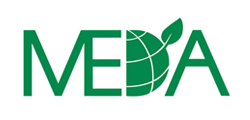
MEDA (Mennonite Economic Development Associates)
MEDA is an international economic development organization whose mission is to create business solutions to poverty. Founded in 1953 by a group of Mennonite business professionals, they partner with the poor to start or grow small and medium-sized businesses in developing regions around the world.
In Ghana they are running a program called GROW – Greater Rural Opportunities for Women, which focuses on improving food security for families in Northern Ghana by assisting women farmers to grow more soybeans and forge market links that will increase incomes. To that end, MEDA has partnered with MM to start-up pilot SoyCow projects and also to distribute 30 SoyaKits and train in their use.

OIC International
OIC International - present in Haiti and 17 African countries with a focus on West Africa, OICI is a dynamic and passionate team with skills and expertise in a wide range of areas, including Technical and Vocational Training, Food Security, Maternal and Child Health, Business Development and Development Finance. OICI believes in the philosophy of self-help, and programs in Livelihood Enhancement and Workforce Development focus on empowering individuals and communities with the skills needed to become self-reliant.

Palladium International
With teams on the ground in over 90 countries, Palladium’s clients rely on them to bring local knowledge, unparalleled technical expertise, and an impact-focused precision to bear on their most complex projects. Palladium manages large-scale, global social and economic change initiatives, where delivering on-time and on-budget in any context is a given. Making this possible requires the ability to work across sectors and stakeholders, under circumstances in which discretion and compliance are essential.
Malnutrition Matters has worked with Palladium in Malawi on the multi-year USAID Feed the Future-funded Agricultural Diversification (AgDiv) project. Based on the rapid and dramatic success of the initial 230 SoyaKits that were deployed in 2018 and 2019, Palladium is scaling up the program to deploy at least 4,000 more units, which will create 4,000 jobs primarily for rural women and will provide protein-rich affordable food daily to 300,000 beneficiaries on a sustainable basis.

Soybean Innovation Lab
The Feed the Future Innovation Lab for Soybean Value Chain Research (Soybean Innovation Lab, SIL) is the United States Agency for International Development’s only comprehensive program dedicated to soybean research for development. The Soybean Innovation Lab is building a foundation for soybean production in Africa by developing the knowledge, innovation, and technologies to enable successful soybean production. As part of the Feed the Future initiative, the Soybean Innovation Lab works to reduce global poverty and hunger by accelerating growth in the agriculture sector through improvements in agricultural productivity among smallholder farmers.
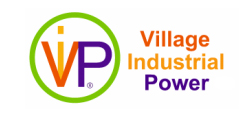
Village Industrial Power
Founded by Carl N. Bielenberg, MSc, M.E., M.I.T., this company is dedicated to the development, manufacture, and sale of small scale biomass power plants for the combined production of electricity, plus thermal and mechanical power in developing countries. The Village Industrial Power (VIP) plant burns biomass in the form of crop waste or wood etc. to produce carbon-neutral, cost effective energy. It is capable of providing the energy requirements of small rural crop processing industries, as well as a micro grid for village electrification.
The VIP's unique synergy with agricultural processing benefits smallholder farmers through self-sufficient and on-demand energy production. Economic opportunity is achieved by producing energy for micro industries. The VIP's multi fuel system converts agricultural waste into power while the synergy with crop processing captures an energy resource that has previously not been utilized in rural communities due to the lack of a suitable technology. The VIP produces mechanical, electrical, and thermal (steam) energy for uses including: fruit and vegetable drying, coconut, coffee and cocoa processing, soap production, hulling and parboiling rice, lumber processing, steam kettles for institutional cooking, laundry, pasteurization, and water purification. The unit can be transported by pickup truck and installed ready to operate.

WISHH
Malnutrition Matters has been working with WISHH (World Initiative for Soy in Human Health) since 2001. They co-sponsored the VitaCow program implemented with the NGO Africare (see above). WISHH has also facilitated numerous initiatives with MM including workshops at the University of Illinois and conferences and workshops in various countries around the world. The current focus of the partnership with WISHH is the southern African region and the program called SISA (Soy in Southern Africa Alliance).
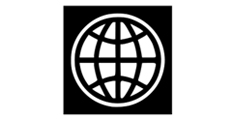
World Bank Development Marketplace
The World Bank Development Marketplace is a competitive grant program of the World Bank that funds innovative, small-scale development projects that deliver results and have the potential to be expanded or replicated. Funding is provided on a 50/50 basis by the World Bank and the Bill and Melinda Gates Foundation. Malnutrition Matters was awarded funding for its ‘Rural Micro-enterprise for Supplemental Nutrition in Orissa’ project, as one of 22 winners of the 2007 competition (see the ‘Projects in Asia’ page for more information on this project). For more information on the World Bank Development Marketplace:
wbi.worldbank.org/ developmentmarketplace/ competition/ idea/winner/108
Stay Up to Date
Questions?
Request more information from matters@malnutrition.org
© 2020 Malnutrition.org | Malnutrition Matters. All Rights Reserved.
